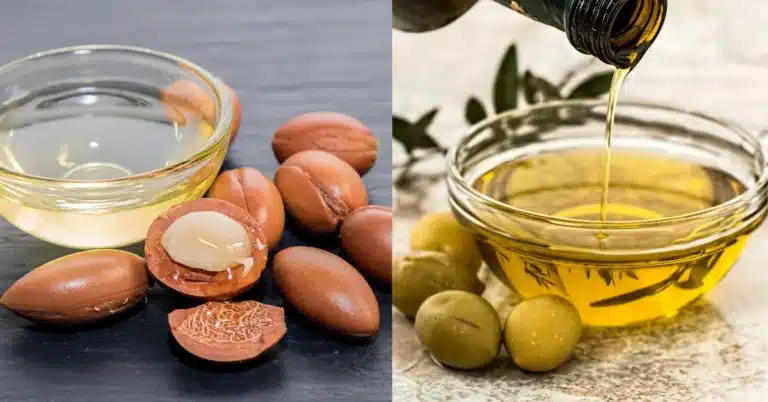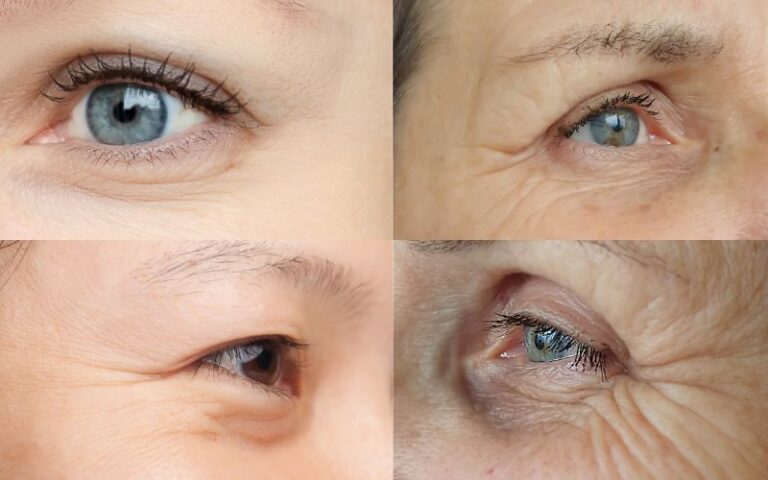Skincare Solutions For Dry Skin Around The Nose

The dry skin around your nose makes it itchy, rough, and flaky. Sometimes, you may find difficulties while applying makeup too. Your makeup may appear uneven and patchy on this dry skin without giving you a good finish.
Why does this dryness around the nose occur, and how may it be eliminated? If you have these questions in your mind, here is the answer. We have listed some causes of dry skin around the nose area, ideas to prevent it, and natural remedies to treat it.
Table Of Contents
- What Causes Dry Skin Around The Nose?
- Ideas To Prevent Dry Skin Around The Nose
- Best Remedies To Heal Dry Skin Around The Nose
- Calm The Dry Skin Around Your Nose
What Causes Dry Skin Around The Nose?
Dry skin around the nose is a common scenario most people face. Usually, dry skin in the nose area will not harm us. But the significant concerns are itchiness and issues during makeup. To avoid this imperfection and uncomfortable feeling, finding the cause is essential.
Here are the primary causes of dry skin around your nose.
- Genetics: Genetics is crucial in deciding a person’s skin type.
- Unhealthy Diet: The lack of nutrients makes your skin sick, dry, and dull.
- Skin Conditions: Conditions like atopic dermatitis, seborrheic dermatitis, chronic sinusitis, and autoimmune disorders also result in dry skin around your nose.
- Environmental Factors: Environmental factors like cold, dry air, dry wind, windburn, sunburn, or continuous sun exposure may affect your skin and make your skin dry.
- Skincare Products: Skin care products that contain retinoids, salicylic acid, or benzoyl peroxide may irritate your nose and result in dryness and peeling.
- Allergies Like Cold: If you have a common cold, you may rub and blow your nose with tissues more frequently. It can make the skin around your nose dry.
- Dehydration: When your skin does not get adequate water, it becomes dry and itchy.
- Hot Shower: Hot shower strips the needed moisture from your skin and makes it dry.
- Frequent Face Wash: Some may practice washing their face more often. This habit can dry out the skin.
Ideas To Prevent Dry Skin Around The Nose
You can prevent the dryness in the skin around your nose by taking a few preventative measures. Here are some
- Make changes to your diet plan and drink more water to keep your skin hydrated.
- Avoid hot or cold-water showers to avoid losing skin moisture. Instead, use lukewarm water.
- Avoid using powder to set the makeup if the skin around your nose tends to dry out soon. It makes your dryness more pronounced.
- Moisturize your skin daily.
- Avoid using certain drugs like retinol that increase your skin’s sunburn sensitivity.
- Use sunscreen if you are going to be around water, snow, or ice too.
- Avoid skincare products that irritate your skin. It is better to use pH-balanced products.
- Properly cleanse your face and remove makeup using a makeup remover or mild cleanser before bed.
Best Remedies To Heal Dry Skin Around The Nose
You can use natural DIY remedies or lifestyle changes to hydrate the dry skin around your nose and repair it.
Lifestyle Changes
- Practice Healthy Diet: Include good fats like pure ghee in your daily meals. Eating green vegetables, fresh fruits, and other nutritional foods suits your skin health.
- Develop Healthy Habits: Quit smoking and cut down alcohol consumption too.
Skincare
- Check The Ingredients List: Try to choose products suitable for your skin type. Your skin around the nose becomes irritated if the ingredients do not match your skin type.
- Use Marine Actives: Marine ingredients like seaweeds, algae, sea kelp, sea salt, sea clay, and seawater are safe and effective when battling dry skin.
- Use Moisturizers Right: It is essential to apply moisturizer to your damp skin to seal the natural moisture that protects it from drying out.
- Do Proper Exfoliation: Exfoliate your nose gently to maintain its softness and shine. Scrubbing hard or exfoliating dry, flaky skin may worsen your skin condition.
- Wisely Choose Your Makeup Products: Your nose is most prone to blackheads. So, use non-comedogenic or non-pore-blocking products with hydrating properties to avoid clogging and skin dryness.
Winter Care
- Use Humidifier: A humidifier adds moisture to the dry air in your room. It can help alleviate the allergy symptoms and protect your skin from becoming dry and chapped.
- Protect Your Skin From Windburn: Even though you use adequate sun protection, wear a scarf or a big hat to protect your skin in winter. Thus, you can protect your skin from windburn, where the cold air causes the skin around the nose to dry.
- Try Nasal Irrigation Devices: Relieving stuffy noses by steaming or flushing a saline solution through your nostrils moisten your nostrils and improve nasal dryness and congestion.
Natural Remedies
- Use Ayurvedic Techniques: You can try various Ayurveda healing methods to treat the dry skin around your nose. Therapeutic practices like abhyanga and almond meal lepa are some ayurvedic remedies to treat dry skin around the nose.
- Use Herbs: Herbs with antibacterial and anti-inflammatory properties can create an impact here. Some herbs are jasmine leaves, sandalwood, neem, moringa, saffron, and aloe vera.
- Use Essential Oils: Essential oils like geranium oil, lavender oil, chamomile oil, and ylang-ylang oil are suitable for restoring your complexion and removing accumulated dead skin cells through nose massaging.
Calm The Dry Skin Around Your Nose
The area around the nose may be prone to dryness, but this is easily treatable. Using suitable skincare products, developing good skincare routines, eating a balanced nutritious diet, and strengthening your immunity are the easiest, safest, most affordable, and most effective ways to prevent dry skin concerns.
FAQs
Q: Can I use lemon to clear the dry layer around my nose?
A: Yes, you can use it. It helps remove the dry skin layer through mild exfoliation. Even though it is helpful, you have to recheck because some skin types may react badly to the acidic nature of lemon.
Q: What foods should be avoided while treating dry skin around the nose?
A: You have to avoid excess sugary and salty foods, fat content, alcohol, and refined carbs. These foods can worsen your condition and trigger allergies.
References
- 9 Reasons of Dry Skin Around Nose & How To Treat It?: https://skinkraft.com/blogs/articles/dry-skin-around-nose
- Dry Skin Around The Nose: Why It Happens, 5 Common Cause & Skin Care Fixes: https://www.mindbodygreen.com/articles/dry-skin-around-nose-what-causes-it-what-to-do
- 10 Remedies To Heal Dry Skin Around The Nose & Prevention Tips: https://www.stylecraze.com/articles/dry-skin-around-nose/
- 7 Causes of Dry, Flaky Skin Around Your Nose and How to Get Rid of It: https://www.teamiblends.com/blogs/lifestyle/causes-of-dry-flaky-skin-around-your-nose
- Dry Skin Around The Nose: Causes, Treatment, & Prevention: https://vedix.com/blogs/articles/how-to–get-rid-of-dry-skin-around-nose
- How to get rid of dry skin around the mouth and nose (and why moisturizing is not enough)?: https://beminimalist.co/blogs/skin-care/how-to-get-rid-of-dry-skin-around-the-mouth-and-nose





